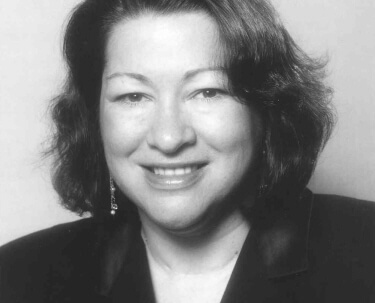
The Rev. Samuel Rodriguez, president of the National Hispanic Christian Leadership Conference, one of the nation’s largest networks of Hispanic believers, said he is cautiously optimistic about Sotomayor, who spent 11 years as a judge on the U.S. Court of Appeals for the 2nd Circuit in New York.
He congratulated her on her historic confirmation, saying it gives Hispanic Americans an opportunity to more fully incorporate into the American community. But he said as an evangelical Christian, he is praying that the new justice “demonstrates moderation, prudence and does not attempt to legislate from the bench.”
“I am prayerfully optimistic that on the issues that matter so much to our community, including issues of life, I do believe that Judge Sotomayor, as a Hispanic and a Roman Catholic, will not betray the core values that are integral to her personal narrative,” Rodriguez told Charisma.
President Obama has presented Sotomayor, 55, as a moderate jurist, emphasizing her rise from housing projects in the Bronx to the nation’s highest courts. But many conservative Christian leaders have strongly opposed her confirmation, describing her as an activist judge who will legislate from the bench and uphold Roe v. Wade.
Family Research Council President Tony Perkins today applauded the 31 Republican senators who opposed Sotomayor’s confirmation, and said his organization hoped she would “refrain from writing new laws from the bench and demonstrate respect for the text and history of the Constitution.”
But he said her record “shows her to be a judicial activist who has no qualms about imposing her policy preferences from the bench, rather than interpreting the law as written.”
Pro-life leaders argue that her record also suggests she would uphold abortion. Last week, the National Right to Life Committee (NRLC) urged the Senate to oppose Sotomayor’s confirmation, citing her position on the board of directors of the Puerto Rican Legal Defense and Education Fund (PRLDEF), which the group said has filed several legal briefs with the Supreme Court calling for unlimited abortions funded by taxpayers.
During four days of confirmation hearings last month, Sotomayor said she considers Roe v. Wade settled law but did not elaborate on her position.
Sotomayor also apologized for speeches she made saying she hoped a “wise Latina” would make better decisions in some cases than a white male. She also distanced herself from statements Obama made in which he said judges should base their decisions in part on personal “empathy” for those facing the court.
Christian legal groups including the American Center for Law and Justice and Liberty Counsel strongly oppose that view, arguing that judges must be more neutral and base their decisions on the rule of law.
“The balance of power established by our founders rides on every vote cast by a justice of the Supreme Court,” said Mathew D. Staver, founder of Liberty Counsel and dean of Liberty University School of Law, during Sotomayor’s confirmation hearings in July. “There is no ‘empathy,’ or subjective standard of interpretation. There is only one standard, and that is the rule of law.”
Throughout the three days of debate this week, which many observers expected to lead to her confirmation, Republican senators emphasized their support for gun and private property rights, the Washington Post reported. For the first time in his more than 30-year career, Utah Sen. Orrin Hatch opposed a Supreme Court nominee, voting against Sotomayor partly because of her rulings in cases involving affirmative action and gun rights.
“I am very, very concerned about this nomination,” he said, according to the Washington Post. “I feel very badly that I have to vote negatively.”
Democratic Sen. Patrick Leahy, chairman of the Judiciary Committee, said Sotomayor’s confirmation is a sign of progress. “With this confirmation we will be making progress,” he said, according to the Post. “Years from now, we will remember this time when we crossed paths with a quintessentially American journey of Sonia Sotomayor.”
Sotomayor is replacing Justice David Souter, who retired. She will take her seat in September when the justices convene for an out-of-session hearing on a campaign finance case. Her first full session will begin on Oct. 5.












































